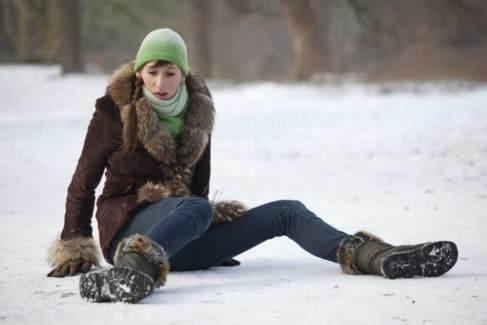We know it’s coming, yet somehow it always seems to creep up on us. Winter is a hazardous time of year for a multitude of reasons, from the rampant spread of coughs and colds to the havoc that drafty homes can wreak on our well being.
Make sure you stay fit and healthy through the worst of the cold weather by knowing how to avoid these common winter emergencies:
Health Proofing Your Home
Sealing up drafts, making sure guttering and roof tiles are in top condition, and insulating external water pipes may not sound like ways to safeguard your health, but breakdown emergencies in the home can lead to breakdowns in your family’s health if you can’t keep warm or your water supply is interrupted.
Other health emergencies happen when people neglect smoke detector testing: batteries should be tested every month and replaced if they fail. CO (carbon monoxide) detectors can also help to keep you healthy in the case of gas leaks.
CO poisoning is especially dangerous because, unlike with smoke, you can’t smell or see it. Symptoms include feeling weak and dizzy or confused, an upset stomach or vomiting, and can cause chest pains.
Stay Safe in the Car
Travel emergencies are more common during the winter months. Keep your vehicle in good health so it doesn’t pose a danger to your own health:
- Keep a basic first aid kit in the car. Include Band-Aids and bandages, painkillers and a small supply of any regular medication you take.
- If you’re going on a longer journey, take blankets and a food and water supply.
- Pack a bag of sand (cat litter works too) to help give traction if you’re caught in snow.
- Make sure your booster cables are in good repair, and take a flashlight with spare batteries.
If you have a vehicle breakdown, remember these safety tips:
- Stay with your vehicle if it’s safe to do so. If you need to get out, keep moving so you don’t get chilled.
- Don’t keep the engine running for more than ten minutes every hour if you’re forced to wait for rescue.
- Make sure the tailpipe isn’t blocked – it happens easily in snow.
Avoid Trips and Falls
From broken bones to sprained joints, slipping in icy or wet weather conditions regularly sends people to the emergency room during winter. Accidents happen regardless of how careful you’ve been, but you can improve the odds with these simple precautions:
- Keep your hands out of your pockets when conditions underfoot are slippery. If you do slip, you will need your hands to prevent you falling flat on your face.
- Use railings or walls for support when walking up or down wet or icy steps.
- Take care when walking on polished or tiled indoor surfaces when your shoes are wet.
- Look where you’re going, instead of concentrating on your phone, and stand still when you need to get something out of your purse.
- Avoid running or fast walking when it is wet underfoot.
Avoid Hypothermia
When your body loses heat faster than you can produce it, your internal temperature can fall dangerously low. In medical terms, dangerously low is a body temperature under 95°. If this happens you need emergency medical care.
Older people and the very young are especially vulnerable, including babies who sleep in cold rooms. It’s not unknown for toddlers to open doors and sneak outside to play in the snow without being adequately dressed, so it’s a good idea to keep doors locked when you’re indoors with children.
If someone does have hypothermia, here’s what to do:
- Take off any wet clothing after moving them into a warm or sheltered environment.
- Wrap them in a warm blanket (an electric blanket works well), covering the head and torso.
- Give the person a warm drink to help bring up their body temperature.
- Get medical help as soon as possible.
Safely Heating Your Home
If you have a fireplace with an open fire, always use a fire screen that is wide enough to cover the entire opening. This ensures it will catch any rolling logs and prevent sparks falling on carpets or furnishings.
Take care if you’re using space heaters. Place them away from anything flammable such as curtains or bedding, and make sure they are on a firm, level surface. Never leave them unattended in a room, and always switch them off before going to bed.
For all its hazards to health and safety, winter is still a beautiful time of year, with plenty of high days and holidays to look forward to. Most people get through without harm or injury, but if you should need us, we are here for you.









